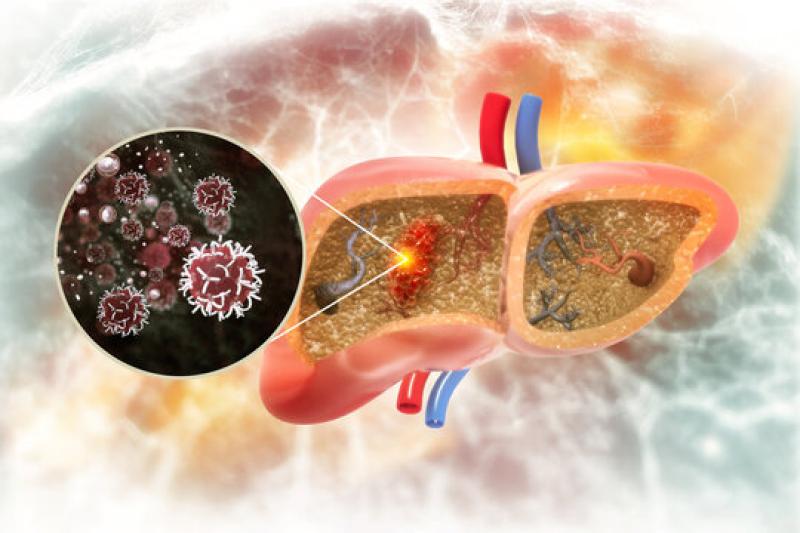Hepatocellular carcinoma (HCC) is the most common primary liver malignancy, representing a significant global health challenge. The rising incidence of liver cancer driven by factors such as chronic hepatitis infections, cirrhosis, and non-alcoholic fatty liver disease has intensified the demand for effective therapeutic options. Recent advances in drug development have revolutionized treatment paradigms, offering new hope for improved patient outcomes. This article delves deep into the current landscape of hepatocellular carcinoma drugs, exploring drug classes, mechanism of action, market trends, and ongoing research.
Emerging Targeted Therapies for Hepatocellular Carcinoma Management
Targeted therapies have increasingly become the cornerstone of advanced-stage hepatocellular carcinoma management. Hepatocellular Carcinoma Drug are designed to interfere with specific molecular pathways responsible for tumor growth and angiogenesis. Tyrosine kinase inhibitors (TKIs) such as sorafenib and lenvatinib remain front-runners in systemic first-line treatment.
Sorafenib, a multikinase inhibitor, targets RAF kinase, vascular endothelial growth factor receptors (VEGFR), and platelet-derived growth factor receptors (PDGFR), thereby inhibiting tumor cell proliferation and neovascularization. Lenvatinib offers a broader inhibition spectrum, including the fibroblast growth factor receptor (FGFR), showing non-inferior efficacy compared to sorafenib.
Recent introductions like cabozantinib and regorafenib have been approved for second-line use, providing additional options for patients who progress on first-line therapy. These agents have demonstrated statistically significant benefits in overall survival and progression-free survival by targeting multiple signaling pathways involved in oncogenesis.
Immune checkpoint inhibitors (ICIs) such as nivolumab and pembrolizumab are also gaining traction due to their ability to enhance the body’s immune response against cancer cells. Combination therapies integrating ICIs with TKIs or anti-angiogenic agents have shown promising synergy and clinical benefits in hepatocellular carcinoma treatment.
Role of Immunotherapy in Hepatocellular Carcinoma Drug Innovations
Immunotherapy represents a paradigm shift in hepatocellular carcinoma treatment, leveraging the patient's immune system to identify and destroy cancer cells. Immune checkpoint blockade has emerged as a powerful approach, primarily by targeting programmed cell death protein 1 (PD-1) and its ligand PD-L1, which cancers exploit to evade immune detection.
Monoclonal antibodies like nivolumab and pembrolizumab interrupt this immune evasion, restoring T-cell activity to fight the tumor. Recently, the approval of the combination of atezolizumab (PD-L1 inhibitor) with bevacizumab (anti-VEGF antibody) has set a new standard for first-line therapy in unresectable hepatocellular carcinoma. This combo not only enhances immune response but also inhibits angiogenesis, resulting in superior survival benefits compared to sorafenib.
Ongoing clinical trials are exploring various immunotherapeutic combinations and novel agents such as CTLA-4 inhibitors, cancer vaccines, and adoptive cell therapies. These advancements underscore the robust innovation pipeline and expanding opportunities for immunotherapy in liver cancer.
Impact of Hepatocellular Carcinoma Drugs on Patient Survival Rates
Hepatocellular carcinoma drug therapy has evolved from limited palliative options to treatments that meaningfully extend patient survival. Before the era of targeted therapies and immunotherapy, chemotherapy offered marginal benefits due to poor tumor responsiveness and toxicity concerns. The advent of TKIs and immune checkpoint inhibitors has dramatically altered this landscape.
Clinical data indicates that sorafenib increased median overall survival by approximately three months compared to placebo, a milestone at the time. The approval of lenvatinib provided an alternative with comparable efficacy. More recently, the immunotherapy combination of atezolizumab and bevacizumab demonstrated a median overall survival exceeding 19 months, a significant improvement for patients with advanced disease.
Moreover, enhanced tolerability profiles and quality-of-life benefits with newer agents have promoted longer treatment durations and better disease control. Ongoing comparative effectiveness research and real-world evidence continue to shed light on the optimal sequencing and combination strategies to maximize survival outcomes.
Navigating the Market Research Report on Advanced HCC Therapeutics
For professionals seeking an in-depth market analysis of hepatocellular carcinoma drugs, there exists a comprehensive market research report detailing commercial trends, pipeline pipelines, competitive landscapes, and regional dynamics. This report provides granular data on product launches, clinical trial progressions, revenue forecasts, and regulatory environments.
In addition, the research identifies key players, emerging stakeholders, and investment opportunities, presenting a 360-degree view of the HCC drug development ecosystem. Market segmentation by drug class, mechanism of action, geographical markets, and patient demographics helps healthcare stakeholders make evidence-based decisions.
The report is ideal for pharmaceutical companies, healthcare providers, investors, and policy planners aiming to understand market drivers, challenges, and growth prospects in the hepatocellular carcinoma pharmaceutical sector.
Commercial Potential of Novel Hepatocellular Carcinoma Drugs and Future Outlook
The commercial landscape for hepatocellular carcinoma drugs is poised for substantial growth driven by burgeoning incidence rates and increasing drug approvals. The global imperative to develop efficacious, safe, and affordable therapies underpins the expansive research and development spending by pharmaceutical companies.
Novel kinase inhibitors, monoclonal antibodies, and immunomodulatory agents continue to dominate pipeline activity. Biosimilars and combination therapies offer promising avenues to balance cost with clinical efficacy. Geographically, significant market expansion is expected in Asia-Pacific due to high disease prevalence, favorable reimbursement policies, and increasing healthcare infrastructure investments.
Strategic partnerships, licensing agreements, and breakthrough designations will likely accelerate market entry for innovative products. Precision medicine approaches and biomarker-driven therapies also hold the potential to transform hepatocellular carcinoma treatment, tailoring interventions to individual patient profiles.
The commercial opportunity underscores the critical importance of ongoing clinical trials and post-marketing studies to confirm long-term benefits and safety, facilitating sustained revenue growth for leading oncology pharmaceutical portfolios.
Get this Report in Japanese Language: 肝細胞がん治療薬市場
Get this Report in Korean Language: 간세포암 치료제 시장
About Author:
Money Singh is a seasoned content writer with over four years of experience in the market research sector. Her expertise spans various industries, including food and beverages, biotechnology, chemical and materials, defense and aerospace, consumer goods, etc. (https://www.linkedin.com/in/money-singh-590844163)
